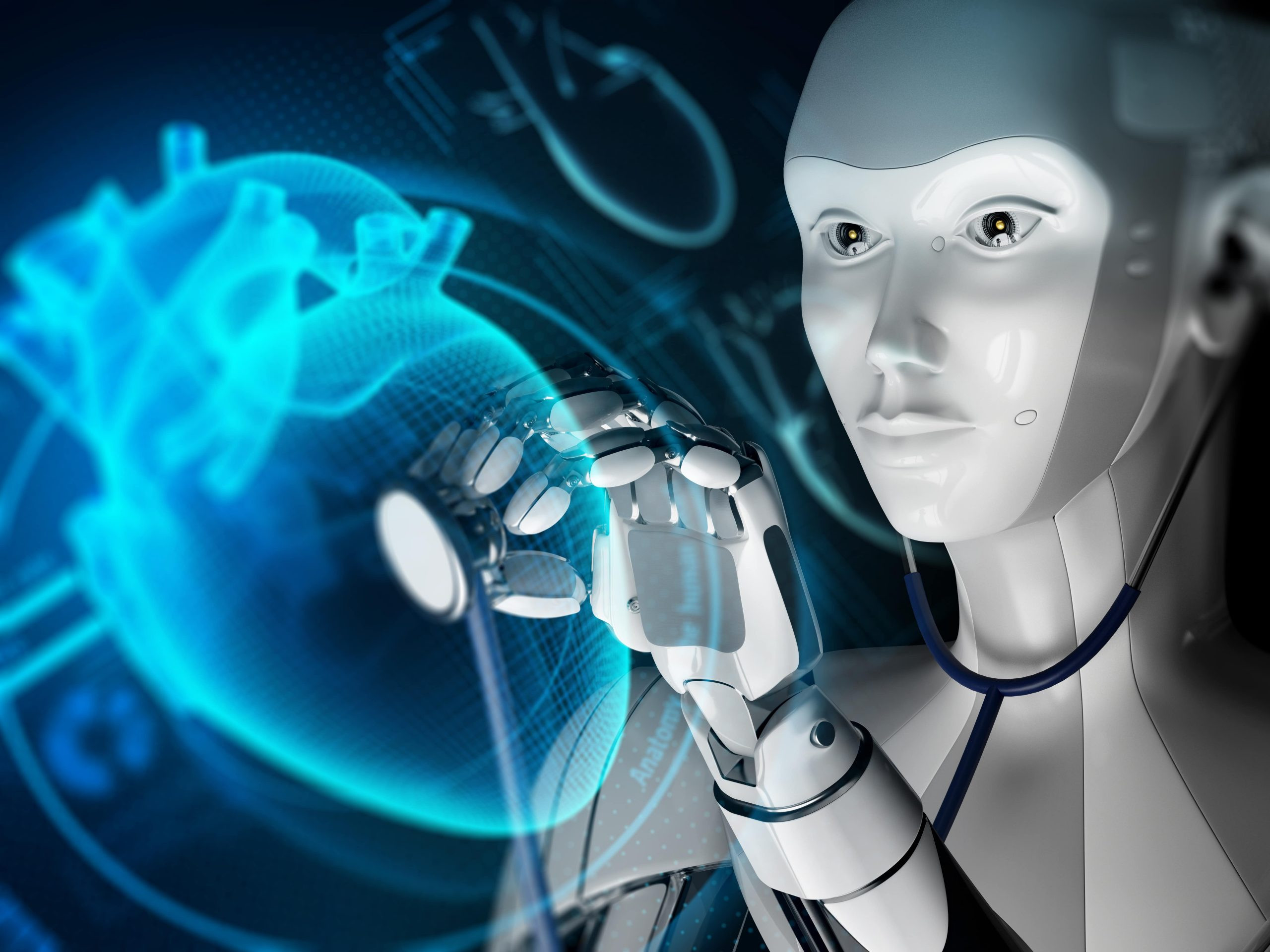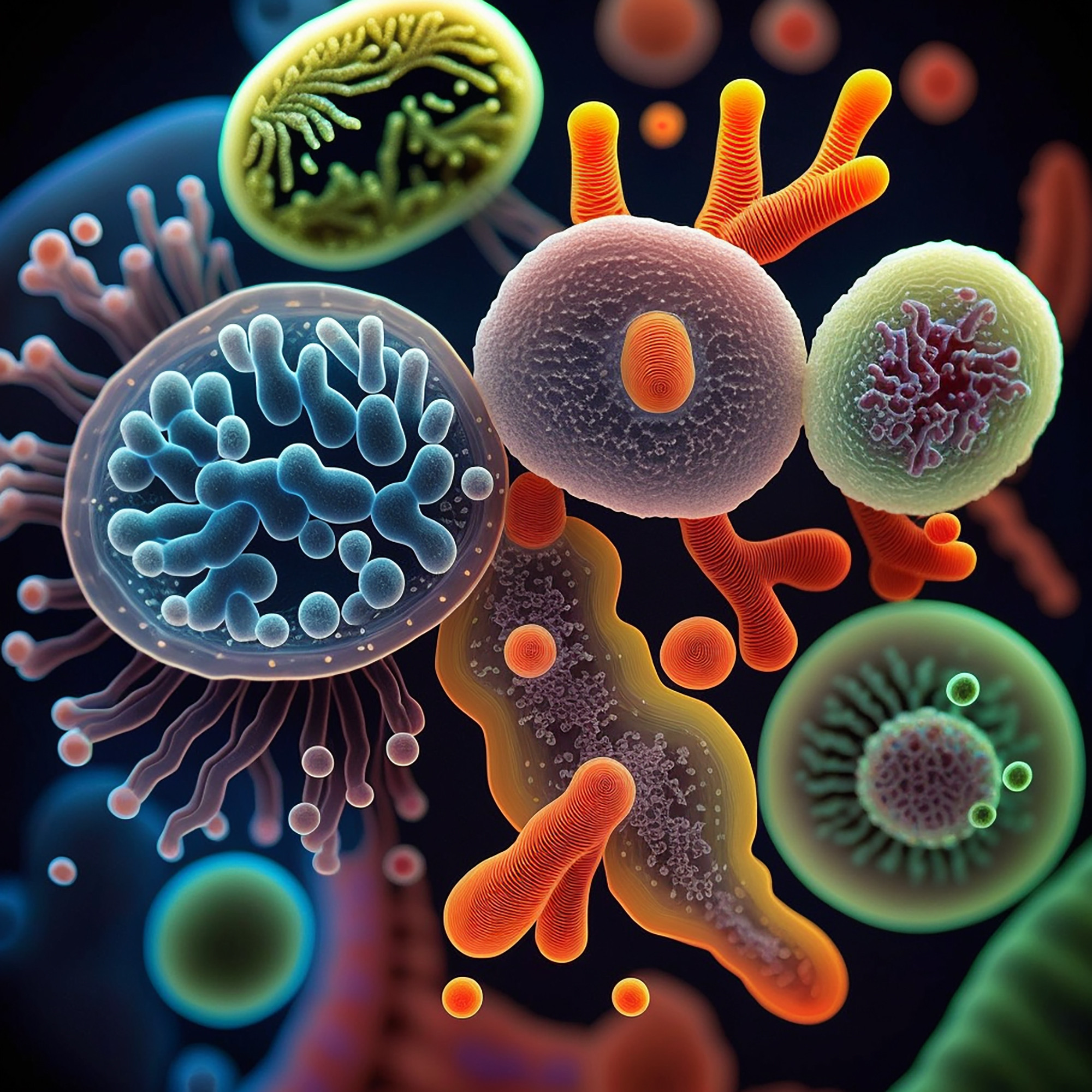The Future of Healthcare: Powered by AI
Artificial intelligence (AI) is rapidly transforming healthcare, offering groundbreaking solutions to age-old challenges. From revolutionizing diagnosis and treatment to enhancing patient care, AI's impact is undeniable. This article explores the transformative power of AI in medicine, examining its potential to reshape the future of healthcare.
AI-Powered Diagnosis: Unlocking Precision and Efficiency
One of the most significant contributions of AI to healthcare is in the realm of diagnosis. AI algorithms can analyze vast amounts of medical data, including patient records, medical images, and genetic information, with unprecedented speed and accuracy. This capability allows for early detection of diseases and identification of potential risks, leading to more effective and timely interventions.
Image Analysis: A New Frontier in Diagnosis
AI is particularly adept at analyzing medical images, such as X-rays, CT scans, and MRIs. AI-powered image recognition software can identify subtle patterns and anomalies that may be missed by human eyes, leading to more accurate diagnoses. For example, AI algorithms are being used to detect cancer cells in biopsies, identify tumors in mammograms, and analyze retinal scans for signs of diabetic retinopathy.
Personalized Medicine: Tailoring Treatment to the Individual
AI is also playing a crucial role in personalized medicine. By analyzing individual patient data, AI algorithms can predict a patient's response to different treatments and identify the most effective therapies for their specific condition. This personalized approach to healthcare allows for more effective treatment outcomes and reduced side effects.
AI in Treatment: Optimizing Efficiency and Effectiveness
Beyond diagnosis, AI is also transforming the way healthcare professionals deliver treatment. AI-powered tools are being used to optimize drug discovery, personalize treatment plans, and enhance surgical procedures.
Drug Discovery: Accelerating the Development of New Therapies
AI is revolutionizing drug discovery by analyzing vast amounts of data to identify potential drug candidates and predict their efficacy. AI algorithms can analyze the interactions of molecules, identify potential drug targets, and simulate clinical trials, speeding up the development of new therapies. This acceleration in drug discovery has the potential to bring life-saving treatments to patients faster than ever before.
Robotic Surgery: Precision and Minimally Invasive Procedures
AI is also playing a key role in robotic surgery. AI-powered robotic systems can perform complex surgical procedures with greater precision and dexterity than human surgeons. These systems offer a number of advantages, including minimally invasive procedures, reduced recovery time, and improved patient outcomes.
AI in Patient Care: Enhancing Accessibility and Engagement
AI is transforming patient care by making it more accessible, efficient, and engaging. AI-powered chatbots and virtual assistants provide patients with instant access to information and support, while AI-powered tools can monitor patient health remotely, providing early intervention when needed.
Chatbots and Virtual Assistants: 24/7 Support and Information
AI-powered chatbots and virtual assistants are becoming increasingly common in healthcare. These tools provide patients with 24/7 access to information and support, answering questions, scheduling appointments, and providing reminders for medications. By automating these tasks, AI chatbots free up healthcare professionals to focus on more complex tasks, improving efficiency and patient satisfaction.
Remote Patient Monitoring: Early Intervention and Personalized Care
AI is also revolutionizing remote patient monitoring. AI-powered devices can track patient vital signs, such as heart rate, blood pressure, and blood glucose levels, and alert healthcare professionals to any potential problems. This allows for early intervention and personalized care, improving patient outcomes and reducing hospital readmissions.
Ethical Considerations: Addressing the Challenges of AI in Healthcare
While the potential of AI in healthcare is immense, it is essential to address the ethical challenges associated with its adoption. Concerns include data privacy, algorithmic bias, and the potential for job displacement. It is crucial to develop ethical guidelines and regulations to ensure that AI is used responsibly and equitably in healthcare.
Data Privacy and Security: Protecting Patient Information
AI relies on vast amounts of data, including sensitive patient information. Ensuring the privacy and security of this data is paramount. Strong data encryption, secure data storage, and robust access control measures are essential to protect patient information from unauthorized access.
Algorithmic Bias: Mitigating Unfair Outcomes
AI algorithms are trained on data, and if the data is biased, the algorithm will perpetuate those biases. This can lead to unfair treatment of certain patient groups. It is crucial to address algorithmic bias by ensuring that the data used to train AI algorithms is representative of the population and free from discriminatory factors.
The Future of AI in Healthcare: A Collaborative Approach
The future of healthcare is inextricably linked to AI. As AI technology continues to advance, it will play an increasingly important role in all aspects of healthcare, from diagnosis and treatment to patient care. However, to realize the full potential of AI, it is essential to embrace a collaborative approach, involving healthcare professionals, researchers, ethicists, and policymakers to ensure that AI is developed and implemented responsibly and ethically. By working together, we can harness the power of AI to create a healthier future for all.
A New Era of Healthcare: From Data to Decisions
AI is ushering in a new era of healthcare, where data-driven insights guide decisions and enhance patient outcomes. This transformation is not without its challenges, but with careful consideration and a commitment to ethical principles, AI has the potential to revolutionize the way we care for ourselves and each other.

















